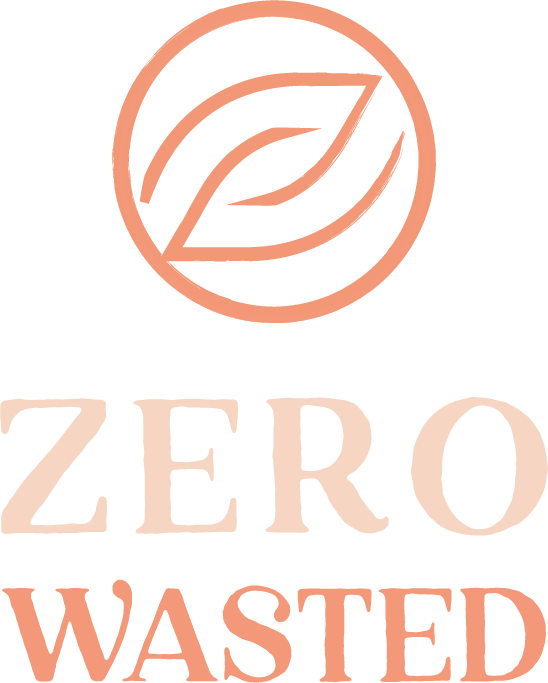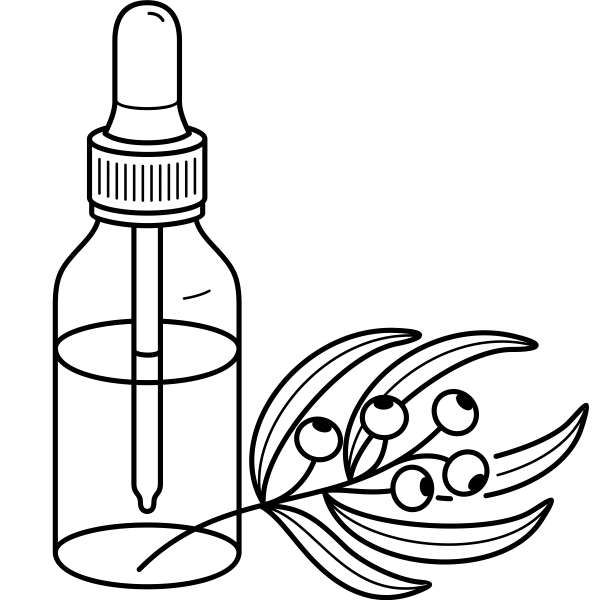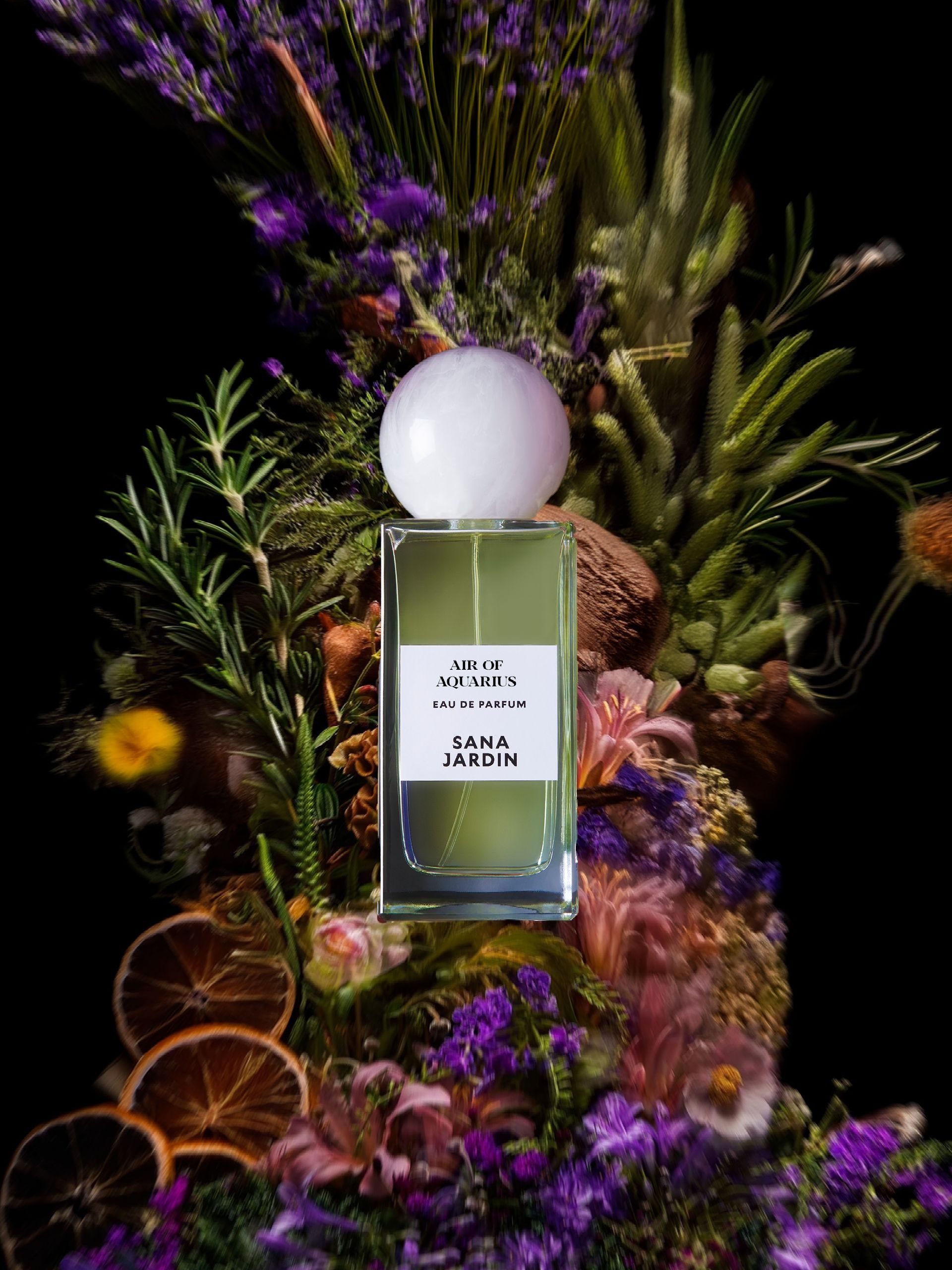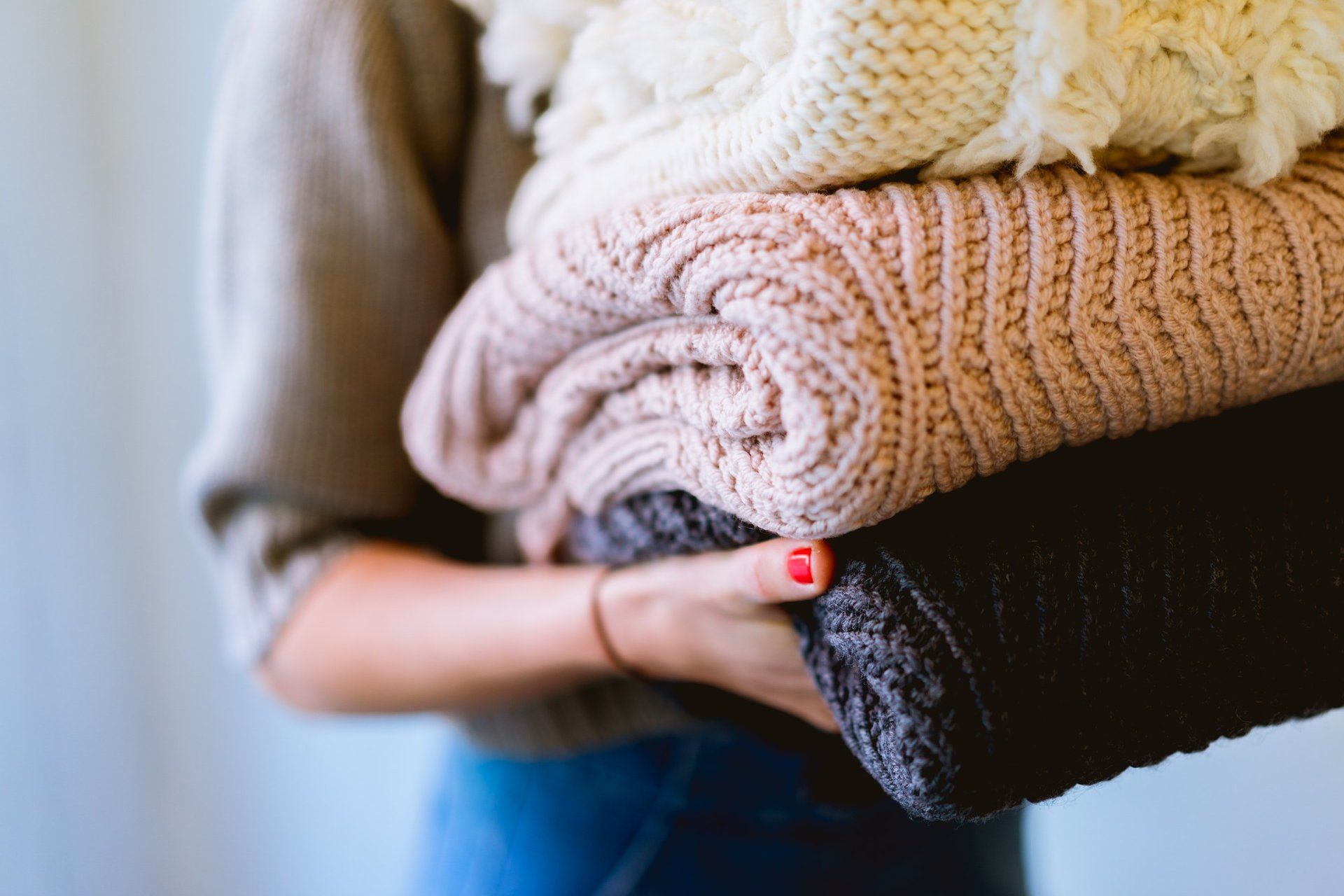Best Ethical, Sustainable & Natural Perfumes in the UK
Our mission at Zero Wasted is to help you make more informed decisions when trying to buy more consciously - we do all the research so you don't have to. We sometimes use affiliate links on our site. We only recommend products we love, that we think you will too.
In this shopping guide, we delve into the enchanting world of fragrance, while exploring their ingredients and what makes a perfume ethical and sustainable.
Our journey also involves a closer look at the intriguing debate between natural and synthetic perfume ingredients, as well as the distinction between commercial and artisan perfumery. Lastly, we present our top choices for eco-friendly perfumes for both men and women, ensuring that your fragrance selection aligns with your values of kindness to people, animals, and the planet.
What's in Perfume: The 3 Key Components
PERFUME OIL
Perfume oil serves as the pure essence of a fragrance, created from a blend of ingredients that can include all-natural components, synthetic elements, or a harmonious combination of both. These components are often categorised as base, middle, and top notes, contributing to the complexity of the scent.
BASE
This is what is used to dilute the concentrated perfume oil, such as alcohol, water, or oil. There are different strengths of perfume based on how much dilution is added which can range from 1-30+% and determines if it's an eau de toilette, eau de parfum etc.
OTHER INGREDIENTS
Additional elements such as preservatives, solvents, UV-absorbers, emulsifiers, and dyes may be incorporated into perfumes. These components are sometimes concealed under generic terms like 'fragrance' or 'parfum.' However, several brands prioritise transparency by disclosing their complete list of ingredients.
Commercial vs. Artisan Perfumes
When you visit your typical department store in search of a designer fragrance, you'll find that most perfumes will have the following three characteristics:
- Primarily made using synthetic ingredients for low cost, high profit margins and consistency for mass production.
- They typically adhere to popular and somewhat generic fragrance families aimed at specific gender.
- They prioritise large-scale production and market appeal over uniqueness, experimentation and creativity.
Beyond the realm of mass commercial perfumery, you'll discover smaller, artisan/niche perfume houses as well as private and exclusive lines within designer brands. Artisan perfumers, in particular, may employ a higher level of natural ingredients along with synthetic ingredients. Here's what sets them apart:
- The use of more rare, exquisite natural materials and/or carefully selected synthetics on a smaller scale of production.
- Artisan perfumers prioritise creative freedom and originality, crafting perfumes to captivate a niche audience rather than seeking mass appeal.
Exploring Perfume Ingredients: Niche Fragrances
My journey into understanding perfume ingredients began out of sheer curiosity as I was frustrated with my inability to discern individual fragrance notes within commercial fragrances. I was completely unaware of the world of niche and artisanal fragrances but my first exploration into them took me to Bloom Perfume in London where I encountered a range of wonderful niche perfume brands, and I was blown away with how different these smelt to all the commercial scents in Boots et al. I could actually smell some of these obscure natural materials and their intensity coming through, sometimes delicately highlighted with synthetics - it was a totally new olfactory ❀ trip.
As my interest grew, I ventured into the realm of essential oils, eager to experience the individual scents in their pure form. This journey captivated me and led me to explore absolutes and CO2 extracts, immersing myself in the study of natural perfumery.
This immersive experience shed light on several crucial aspects such as:
- The historical use of these materials and the intricate extraction processes that varied from steam distillation for essential oils to solvent extraction for absolutes and concretes.
- The remarkable value of certain materials; for instance, around 50 roses are required to produce just one drop of precious rose essential oil, making it one of the most expensive oils globally.
- Most significantly, I realised that the scents of these natural materials were distinctly different from the synthetic notes found in commercial perfumes.
DID YOU KNOW
Around 50 roses are needed to produce just a single drop of rose essential oil.
Rose is one of the most expensive oils in the world, along with Jasmine, Neroli and Sandalwood. To get 1kg of each oil would cost around £20,000 for Bulgarian Rose Otto essential oil, £5,000 for Jasmine Sambac absolute, £7,000 for Neroli essential oil and £7,000 for Indian Sandalwood essential oil.
The natural and synthetic fragrance worlds, I discovered, were very different. Each possessing their own unique qualities and values, pros and cons, and in the case of niche perfumery can coexist harmoniously. However, there is a common question that comes up - is a natural perfume better than synthetic perfume? As with most things, it's not quite so clean cut.
Natural vs. Synthetic Ingredients: A super simple comparison chart
| Natural | Synthetic | |
|---|---|---|
| Ingredient Types | Essential Oils, Absolutes, Concretes, Resins, CO2 Extracts | Aroma molecules |
| Source | Plants and botanicals (flowers, woods, spices, trees, herbs, resins) | Petroleum and natural gas and/or scent molecules extracted from plant sources |
| Method | Steam distillation (essential oils), Solvent extraction (Concrete, resinoid, absolutes), CO2 Extracts, Cold-Press Extraction | Synthesised in a lab |
| Aroma | Richness and depth, evolves, shorter life, variation year on year | Linear, lasts longer, cheaper, reliable production and consistent scent |
| Fragrance Palette | More limited palette, won't be able to make light sparkly florals, fresh marine fragrances etc. | Wider nuanced palette, can create all manner of scents, and add dimension to naturals |
| Cost | Varies greatly, can be incredibly costly | Cheaper and more cost efficient, more stable pricing |
| Allergies | Can be skin sensitising, more difficult to assess as there are hundreds of different molecules | Can be skin sensitising, easier to assess as usually singular molecules |
| Sustainability | Can provide livelihoods for farmers and communities but certain oils pose risks of deforestation, over harvesting or exploitation | Conserves resources to cultivate, harvest, process and transport, but some synthetics may have biodegradability issues |
There's also a little grey area in-between these which are Natural Isolates. Derived from plants, they share the same chemical structure as synthetic counterparts, offering precision in fragrance creation, balance, and longevity on the skin, but are derived fro plants instead of crude oil, and so are biodegradable.
Natural Ingredients at Environmental Risk
Further from our comparison above for sustainability, if all synthetic fragrance was switched to naturals the natural world would not be able to keep up with the demand and it would actually become unsustainable. Here are some of the natural perfume ingredients at most environmental risk and their more sustainable varieties:
- Sandalwood: Over harvesting for its valuable heartwood has led to depletion, especially of Indian Sandalwood, impacting its sustainability. While Australian Sandalwood is considered a more sustainable alternative, it also faces challenges, so management and certification programs can help ensure responsible harvesting practices.
- Jasmine: The intensive cultivation of jasmine for its essential oil can contribute to soil degradation and pesticide use. Sustainably sourced Indian or Egyptian jasmine absolutes promote environmentally responsible agricultural practices and protect local farmers' health and safety.
- Rose Absolute: Rose cultivation can be resource-intensive, requiring large quantities of water and land. Unsustainable practices can lead to soil degradation and excessive water use, whereas sustainably sourced Bulgarian Rose prioritises organic principles, sustainable agriculture, and social responsibility, reducing resource-intensive practices, soil degradation, and excessive water use.
- Orange Blossom Oil: Intensive orange blossom cultivation can contribute to soil erosion and water pollution due to pesticide use. Sana Jardin are going beyond sustainability with their Orange Blossom Project.
- Vanilla: Vanilla cultivation requires specific conditions, and natural disasters can disrupt supply. Also, some vanilla farming practices contribute to deforestation. Madagascar Bourbon or Tahitian vanilla are better known for their sustainable and ethical farming practices when supported by programs like the Sustainable Vanilla Initiative.
- Patchouli: Patchouli is often grown in regions susceptible to political instability and war, leading to price fluctuations and ethical concerns. Sustainable patchouli production in Indonesia emphasises renewable energy, emissions reduction, forest preservation, and farmer training for improved livelihoods and sustainability.
- Bois de Rose (Rosewood): Overharvesting of rosewood trees for their essential oil has resulted in deforestation and endangered species. Hō wood essential oil or synthetic rosewood can be more sustainable alternatives.
- Oud (Agarwood): The extraction of oud oil from endangered agarwood trees has led to illegal logging and deforestation. Sustainably cultivated agarwood or synthetic oud compounds help to prevent further deforestation.
Recognise that sometimes lab-made synthetic ingredients can be more environmentally friendly than naturally derived ones. So consider a compromise when it benefits the environment and supports sustainable practices.
What Should We Look for in an Ethical & Sustainable Perfume?
As you can see it's not quite as simple as thinking natural is
better, there's many factors at play, from but having an awareness and education means that you can make a completely informed decision that's right for you. As consumers, we can play a role by seeking out brands that share the following values:
RESPONSIBLY SOURCED INGREDIENTS
Perfumes that are not exploitative of planet, animals or people, opting for ethical and sustainable practices such as organic farming, wild-harvested and fair trade, along with being a vegan, cruelty-free, paraben free and phthalate free perfume.
CONSCIOUS PACKAGING
Choose brands that prioritise minimal and eco-friendly packaging that reduces waste and plastic, with a focus on using recycled and recyclable materials in both the perfume bottle and outer packaging.
Best Ethical & Sustainable Perfumes
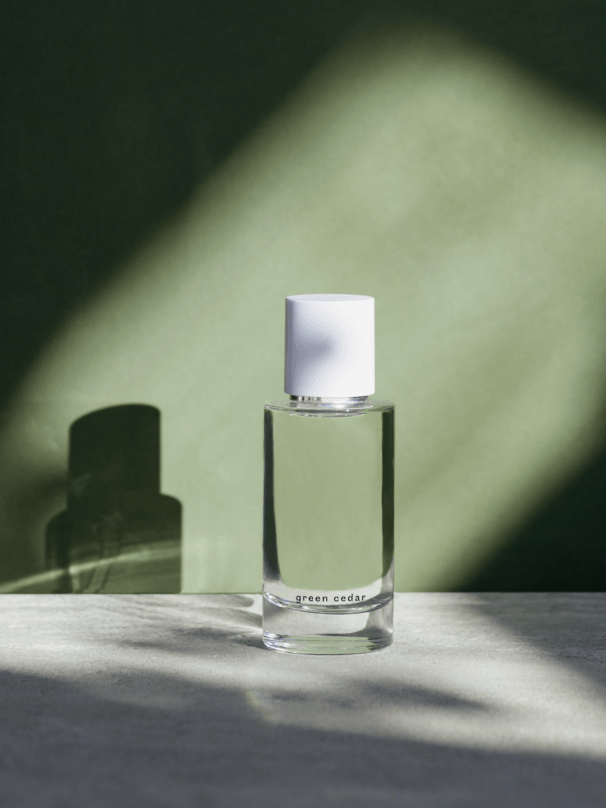
1. Abel
Best for Couture Natural Fragrance
Natural perfume house Abel brings art, sustainable ethics and natural science together with the aim of making the world’s best unisex natural perfumes, and having a positive impact both on the environment and the community. Sample set for £20.
Cost: £118 for 50ml / Price per ml: £2.36
Travel / Samples:
✓ from £18
All-Natural: ✓ and uses natural isolates
Base: Food-grade alcohol (non-denatured) from organic origin
Outer Packaging: FSC paper packaging
Bottle: Glass bottle with bakelite cap created from a combination of natural gas and plant-based cellulose (32%) derived from wood grown in sustainable managed FSC forests
Vegan & Cruelty Free: ✓
Concentration: Eau de parfum (minimum 15%)
"Transparency is at the heart of who we are, which is why we share our full ingredients list for all fragrances. We believe you have as much right to know what ingredients are in your perfume and where they come from as you do in your food."
ABEL
2. Sana Jardin
Best for Social Impact
Sana Jardin is a socially conscious, luxury fragrance house whose mission is to use clean and sustainable perfume as a vehicle for social good. Each of their fragrances feature one or more organic floral ingredient grown by Les Aromes du Maroc, and hand-picked by the female harvesters involved in their Beyond Sustainability™ Movement. The flower waste is then up-cycled into flower water and candles, and training is provided to support micro-businesses within the community.
Cost: £95 for 50ml / Price per ml: £1.90
Travel / Sample Sets: ✓ from £28
All-Natural: ✘ high natural content / small amount of synthetic
Base: Alcohol (denatured)
Outer Packaging: Recycled paper and fully recyclable
Bottle: Made from 30% recycled materials and glass is recyclable
Vegan & Cruelty Free: ✓
Concentration: Eau de parfum
“I wanted to create a fragrance house with strong sustainability ethos that contributed to the economic empowerment of women. This is Sana Jardin”
AMY CHRISTIANSEN, FOUNDER OF SANA JARDIN
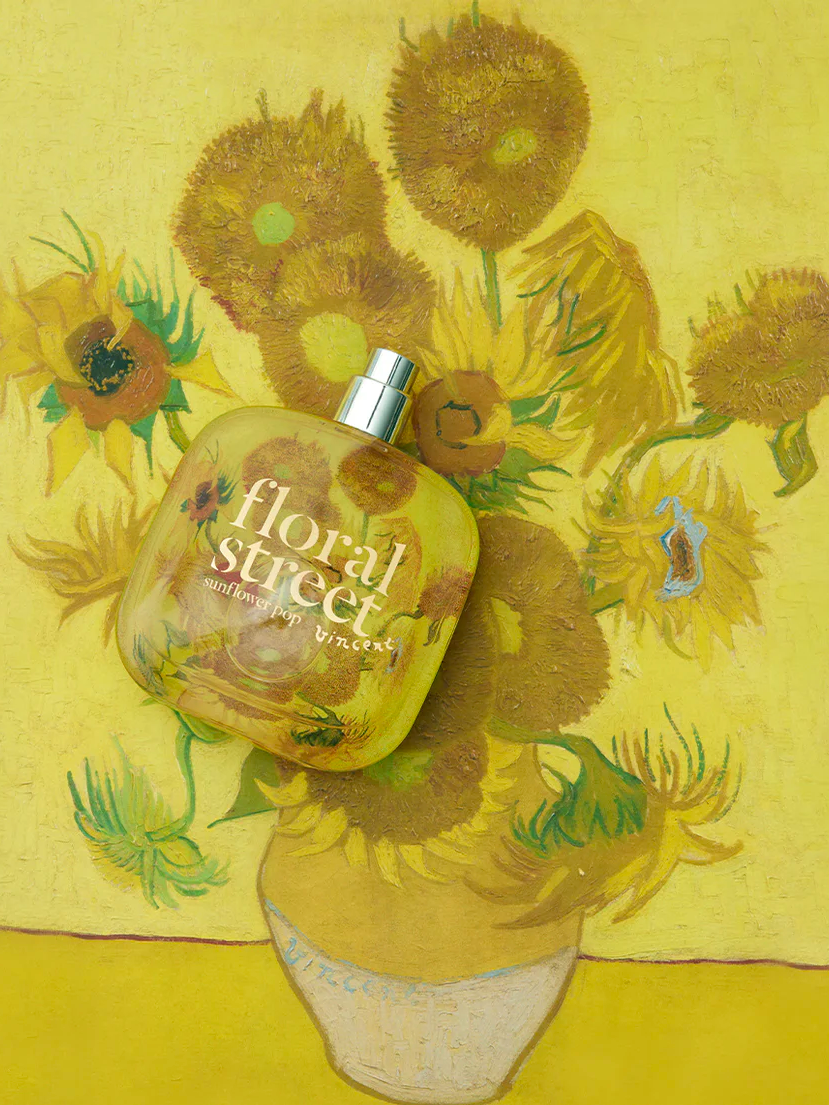
3. Floral Street
Best for Zero Waste Packaging
Floral Street are an independent British company with a strong set of values and ethics. Through the brand’s partnership with the World Land Trust, Floral Street is Carbon Neutral and helping to protect critically threatened forests. From seed to scent they know where everything comes from. They've got a range of scents including a collaboration with the Van Gogh Museum called 'Sunflower Pop' and their 'Electric Rhubarb' supports the work of the Royal Horticultural Society. Prices start from just £9.00 for their discovery sets.
Cost: £68 for 50ml / Price per ml: £1.36
Travel / Samples:
✓ from £16
All-Natural: ✘ both natural and synthetic
Base: Alcohol (denatured) and water
Outer Packaging: Recyclable FSC certified paper and industry-first compostable pulp box
Bottle: Recyclable glass, refillable at London store and get 20% off
Vegan & Cruelty Free: ✓ Accredited by PETA
Concentration: Eau de parfum (20%)
"We are sustainable every step of the way, from the ingredients right the way through to the packaging. With ingredients, I care about our suppliers and growers being treated ethically."
MICHELLE FEENEY, FOUNDER OF FLORAL STREET
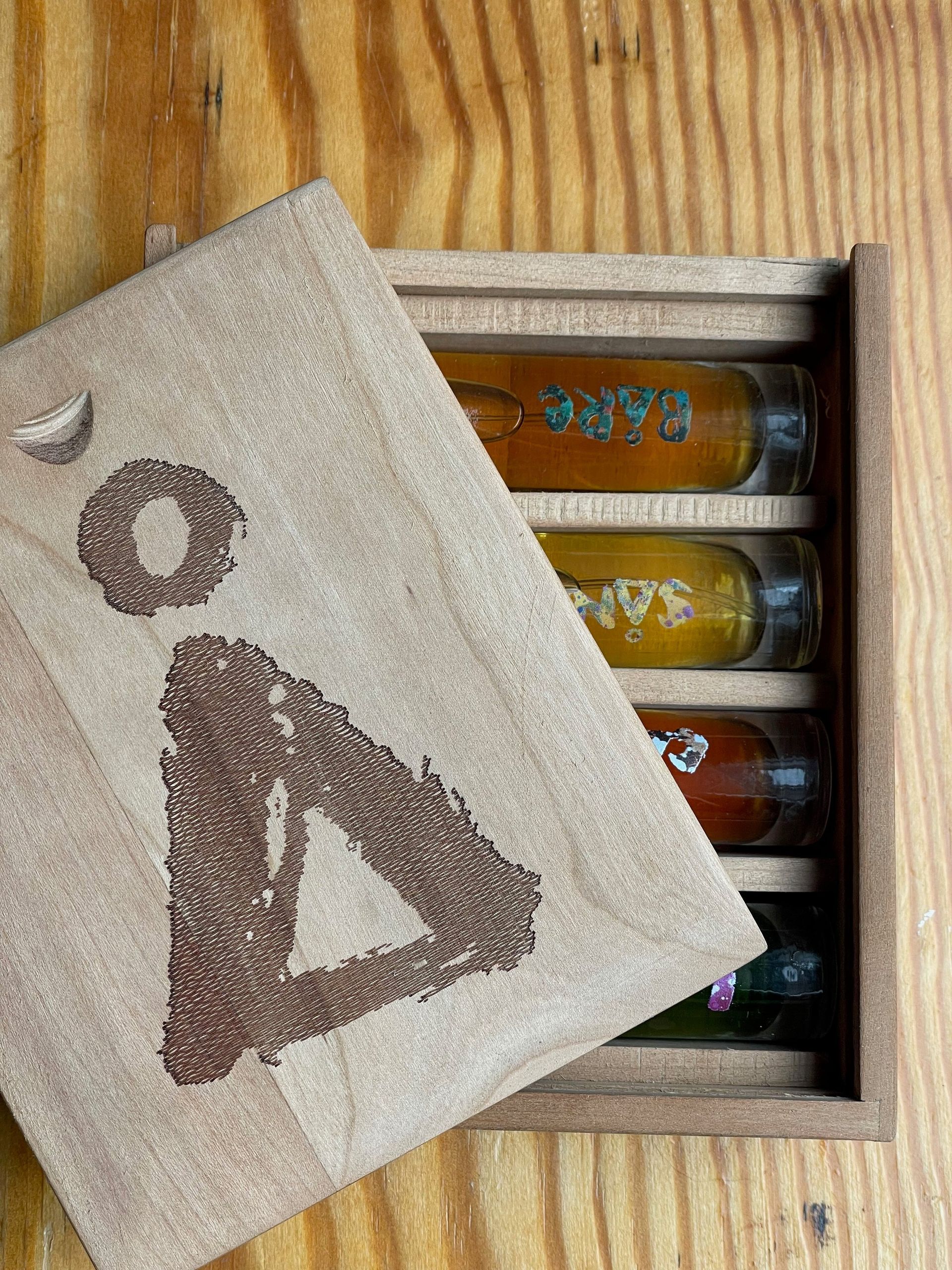
4. ånd Fragrances
Best for Perfume that Supports Indigenous Communities
ånd Fragrance specialises in creating ethical, vegan, and sustainable fine fragrances. Founded by Simon Constantine, the brand emphasises the use of natural ingredients with each fragrance having it's own ingredient story and contributing to help the indigenous communities who harvest them.
ånd Fragrance products are handcrafted and environmentally friendly, ensuring cruelty-free practices and regenerative packaging. The brand's commitment extends beyond fragrance, fostering positive environmental and social impact.
Cost: £125 for 50ml / Price per ml: £2.50
Travel / Samples:
✓ from £6.50
All-Natural: ✓
Base: Alcohol (non-denatured)
Outer Packaging: FSC paper packaging
Bottle: Recycled plastic cap, recyclable glass, Solid perfume packaged in Ecuadorian tagua nuts
Vegan & Cruelty Free: ✓
Concentration: Eau de parfum (minimum 15%)
"The concept of ånd came from a feeling that the world was suffering fear and confusion and that it was time for some positive solutions to the problems we all face. Obviously perfume is a strange place to start but it’s my craft and the only way I could see to make a contribution"
SIMON CONSTANTINE
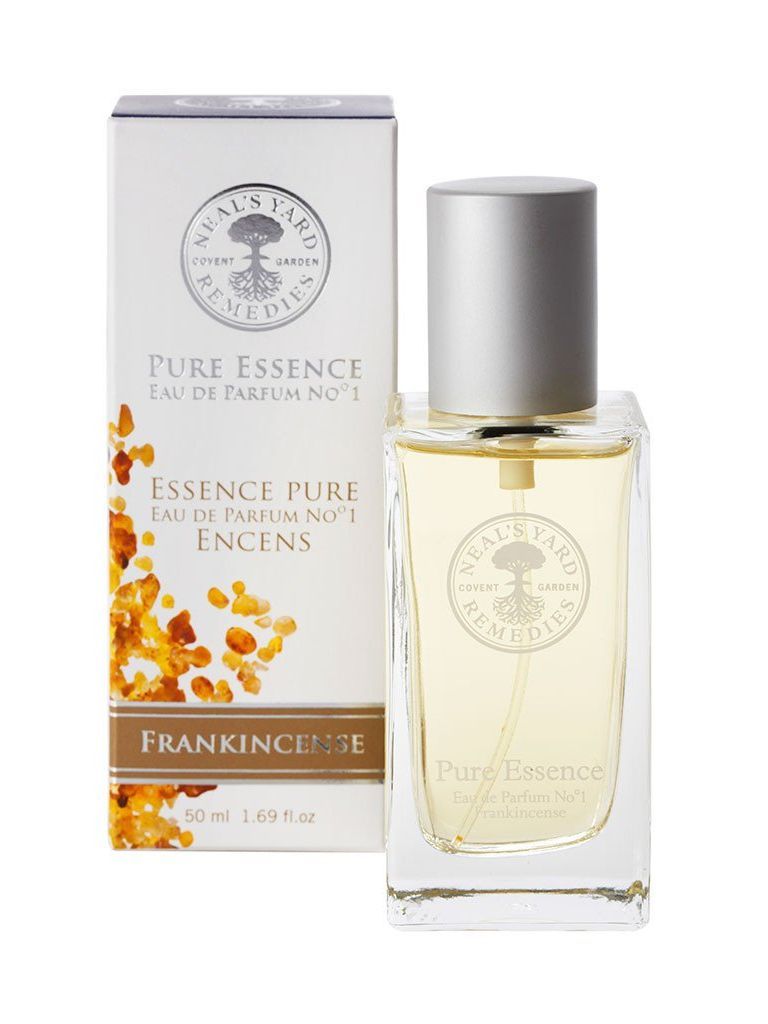
5. Neal's Yard Remedies
Best for Organic Aromatherapy Blends
Established in 1981, Neal's Yard Remedies is a modern apothecary, creating award-winning natural and organic health and beauty. Made at their eco-factory in Dorset, England. Their fragrance is made with a blend of organic essential oils.
Cost: £41 for 50ml / Price per ml: 82p
Travel / Samples: ✘
All-Natural: ✓
Base: Alcohol (denatured) from organic origin and water
Outer Packaging: Recyclable box
Bottle: Recyclable glass bottle, recyclable aluminium cap
Vegan & Cruelty Free: ✓
Concentration: Eau de parfum
"Since we opened our doors in Covent Garden in 1981 we have been dedicated to trading sustainably and ethically and treating people fairly, whether they are suppliers, customers or staff members. ''
NEALS YARD REMEDIES
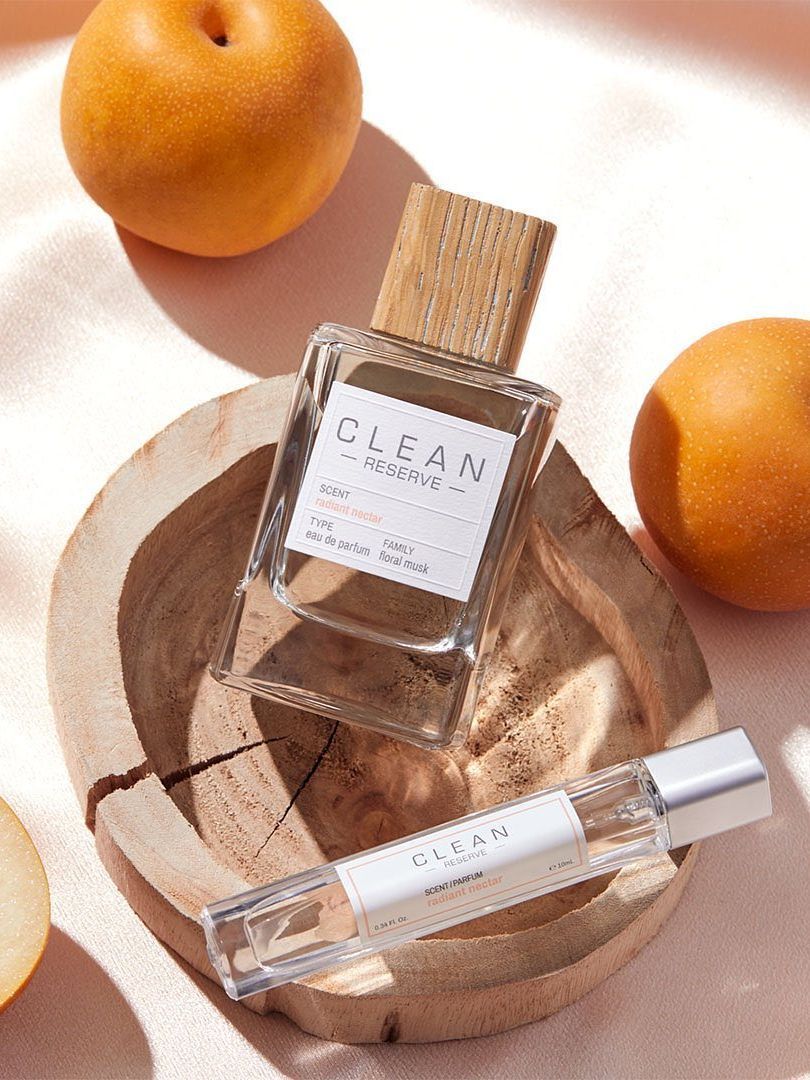
6. Clean Reserve
Best for farm-to-fragrance ingredients
Crafted from responsibly sourced ingredients and with an eco-conscious approach to manufacturing and packaging, their fragrance is the result of a creative collaboration between three top fragrance houses known for their commitment to sustainability and philanthropy. Featuring sustainable farm-to-fragrance ingredients, ethically sourced and blended into unforgettable scents. They also support a program providing clean water to schools and communities in Haiti, support local farmers, and partner with community-focused organisations. The fragrance manufacturer powering their production relies on solar energy for 80% of its power needs, reducing their carbon footprint.
Cost:
£82 for 100ml /
Price per ml: 82p
All-Natural: ✘ both natural and synthetic
Travel / Sample Sets:
✓ from £20
Base: Alcohol (denatured), water and glycerin/aloe vera
Outer Packaging: FSC-certified recyclable box from carbon neutral facility, compostable plant-based cellophane, label suppliers use waste paper as packaging instead of plastic bubble wrap
Bottle: Recyclable glass bottle, cap made from sustainable wood from Spain
Vegan & Cruelty Free: ✓
Concentration: Eau de parfum
"We focus on using ingredients that are ethically harvested, without depleting natural supply. We make every effort to use eco-conscious packaging for all of our products, whenever possible. And we consider it an honour to partner with companies that help support small farming communities around the world."
CLEAN RESERVE
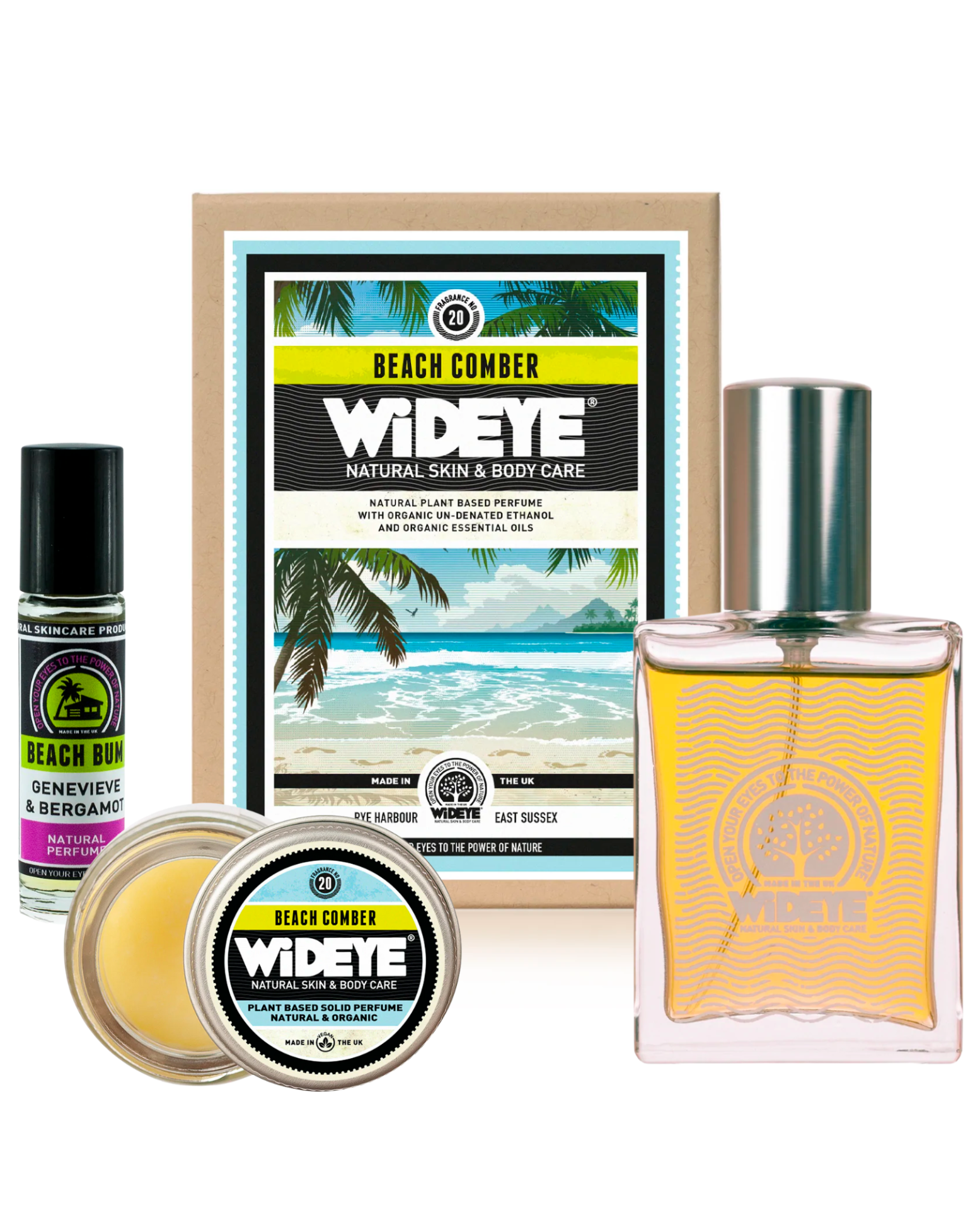
7. WiDEYE
Best for Organic Solid, Roller & Spray
Handmade in Rye Habour, England - this beautiful natural and organic perfume range has 8 fine fragrances, 8 solid perfumes and 6 oil based (alcohol free) roll-ons. The rollers and solids are perfect for travelling and on-the-go for subtle application throughout the day. We love the fun creativity of this range with names like 'Beach Bum', 'Hula Hula, 'Secret Garden', 'Silk Road' and 'Pot Head'.
Cost: £39.50 for 30ml / Price per ml: £1.31
Travel / Samples:
✓ from £3
All-Natural: ✓
Base: Alcohol (non-denatured) from organic origin
Outer Packaging: Recyclable cardboard
Bottle: Glass bottle with aluminium lid, glass roller bottle, glass pot with aluminium lid
Vegan & Cruelty Free: ✓
Concentration: Eau de parfum (minimum 15%)
"The key belief is that natural, ethical beauty products could and should be affordable, gender neutral and appeal to all age groups."
WIDEYE
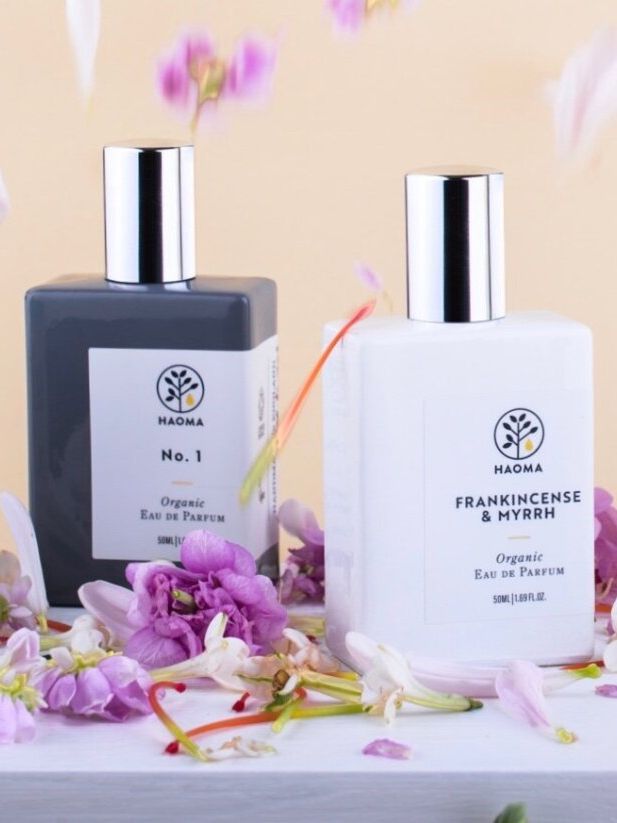
8. Haoma
Best for Organic Minimalist Scents
Handmade in small batches in England, Haoma are passionate about purity. They use certified organic and certified food grade pure essential oils and they don't use any emulsifiers or preservatives, but instead use violet coloured Miron glass utilising the science of Biophotonics with selective UV filtration. Pretty cool, huh?
Cost: £45 for 50ml / Price per ml: 90p
All-Natural: ✓
Travel / Samples:
✘
Base: Alcohol (ethanol) from organic origin
Outer Packaging: Natural and recycled paper
Bottle: Glass bottle, metal atomiser, cap is aluminium with plastic inner, all fully recyclable
Vegan & Cruelty Free: ✓
Concentration: Eau de parfum (10-15%)
"Haoma is built on the power of plants. All I want for earth is sustainability, harmony and a bright future. Please join me in my adventure."
ENIS ANTEPLIOGLU, FOUNDER OF HAOMA
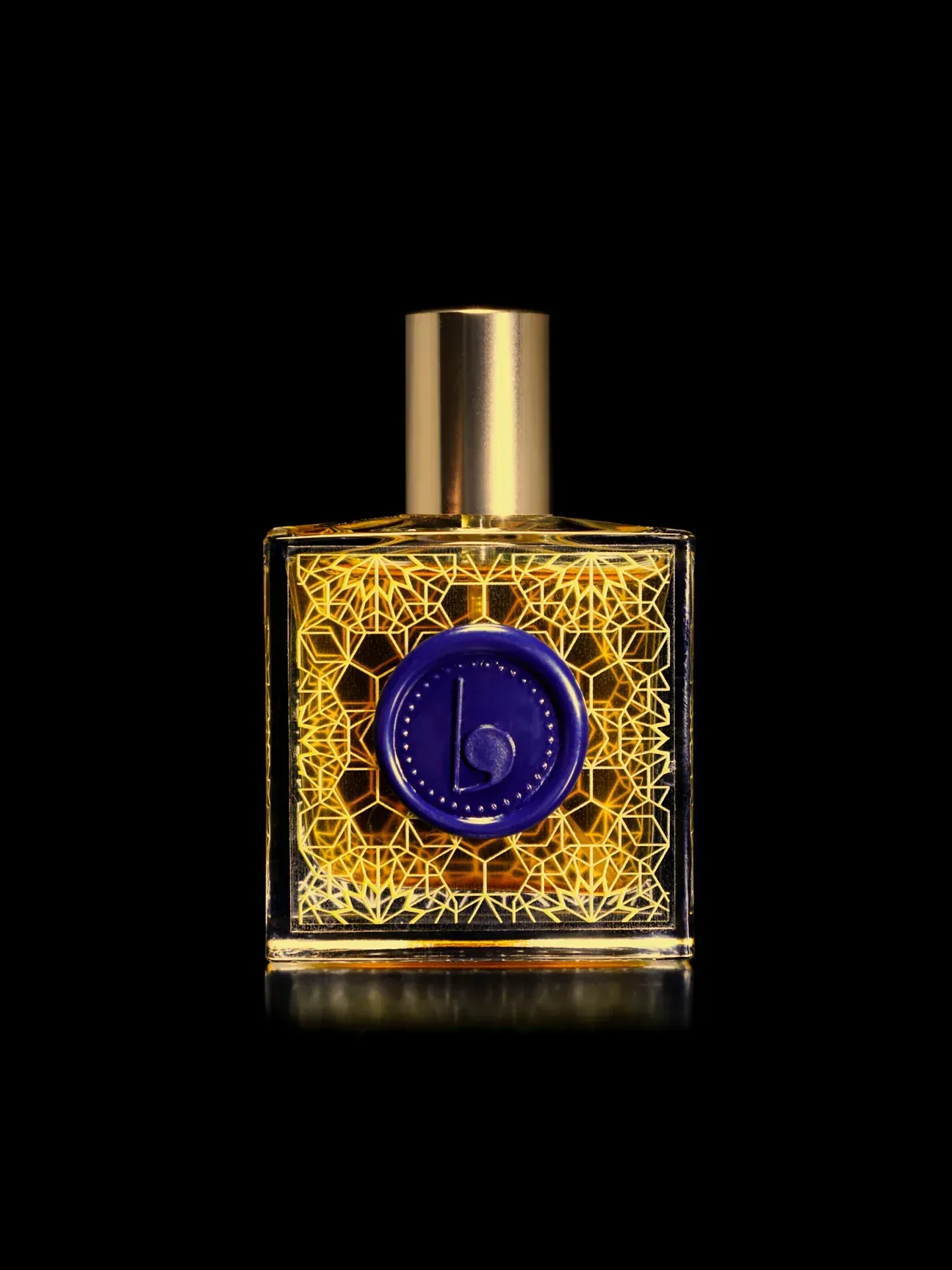
9. Lovorika
Best for Alcohol Free Natural Perfume
Lovorika is an ethical fragrance brand rooted in natural perfumery and aromatherapy. They use the highest grade essential oils, luxurious Absolutes, Resins, CO2s, and Natural Isolates sustainably sourced globally, providing the goodness of organic aromatherapy and the luxury of hand-crafted natural perfumery. Each fragrance has a matching body oil which is just £30 for 50ml.
Cost: £110 for 30ml / Price per ml: £3.66
Travel / Samples:
✓ from £7.50
All-Natural: ✓
Base: Fractionated Coconut Oil
Outer Packaging: Recyclable cardboard
Bottle: Glass bottle with aluminium lid. Contact the brand to return your bottle to be refilled with 10% off
Vegan & Cruelty Free: ✓
Concentration: Eau de parfum (minimum 15%)
"Our ethos is simple. All products, synthetic or natural, need to be clearly listed on all labels. ‘Fragrance’ or ‘parfum’ simply won’t fly. Not anymore. Consumers deserve to know what’s in their products so they can make an informed choice."
DAPHNA ROWE, FOUNDER OF LOVORIKA
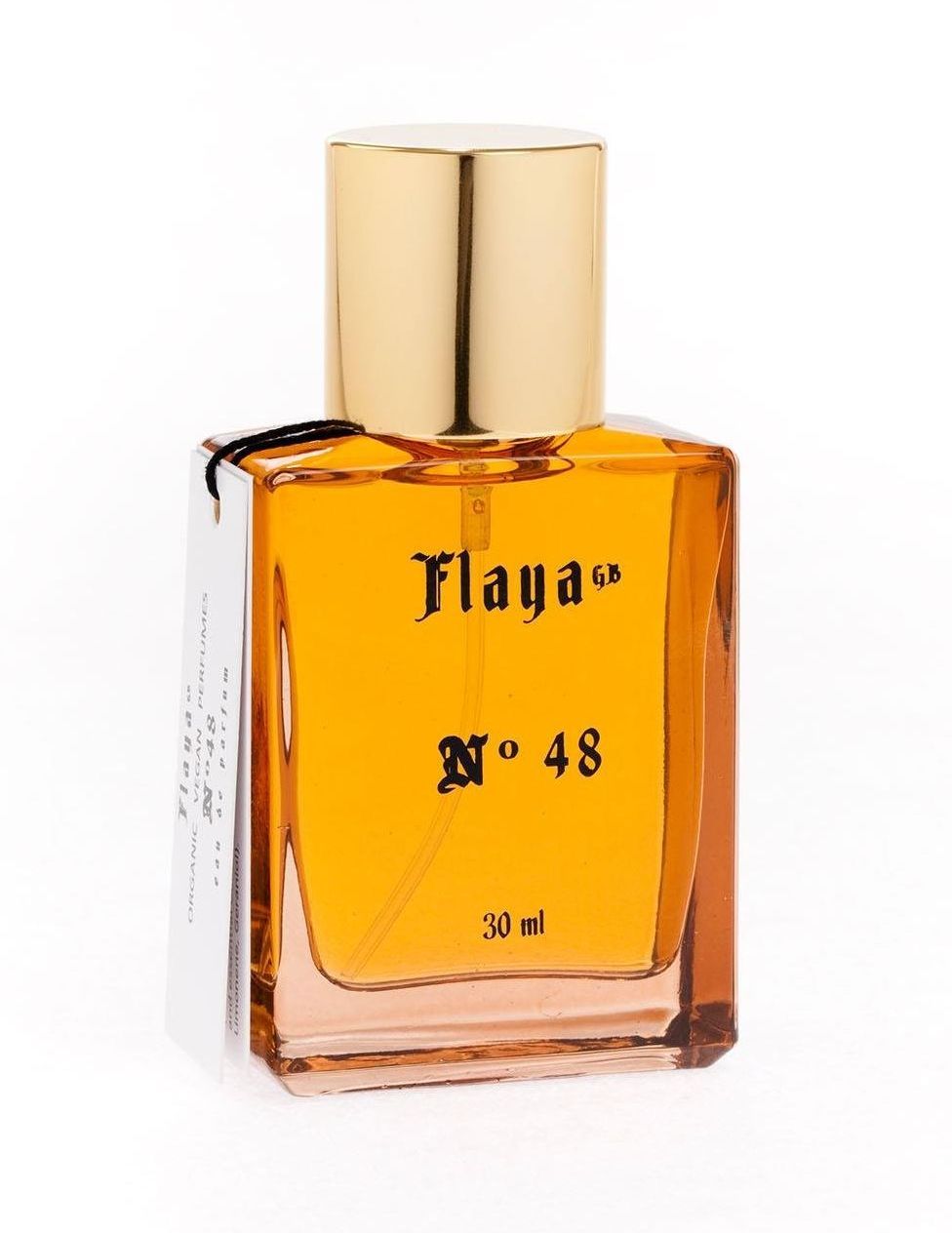
10. Flaya
Best for Organic Feminine Scents
Flaya is a small family run business with a passion for organic and vegan perfumes. Handmade in small batches in Scotland, their perfumes are entirely natural and certified by the Non-Food Certification Company (part of the Organic Food Federation) which offers more assurances for customers.
Cost: £26.99 for 30ml / Price per ml: 90p
Travel / Samples:
✓ from £10.50
All-Natural: ✓
Base: Alcohol (denatured) from organic sources
Outer Packaging: Recyclable cardboard
Bottle: Recyclable glass bottle and metal cap
Vegan & Cruelty Free: ✓
Concentration: Eau de parfum (20%)
"We use organic ingredients where possible and our entire range of fragrances contain between 80% and 92% certified organic ingredients."
FLAYA
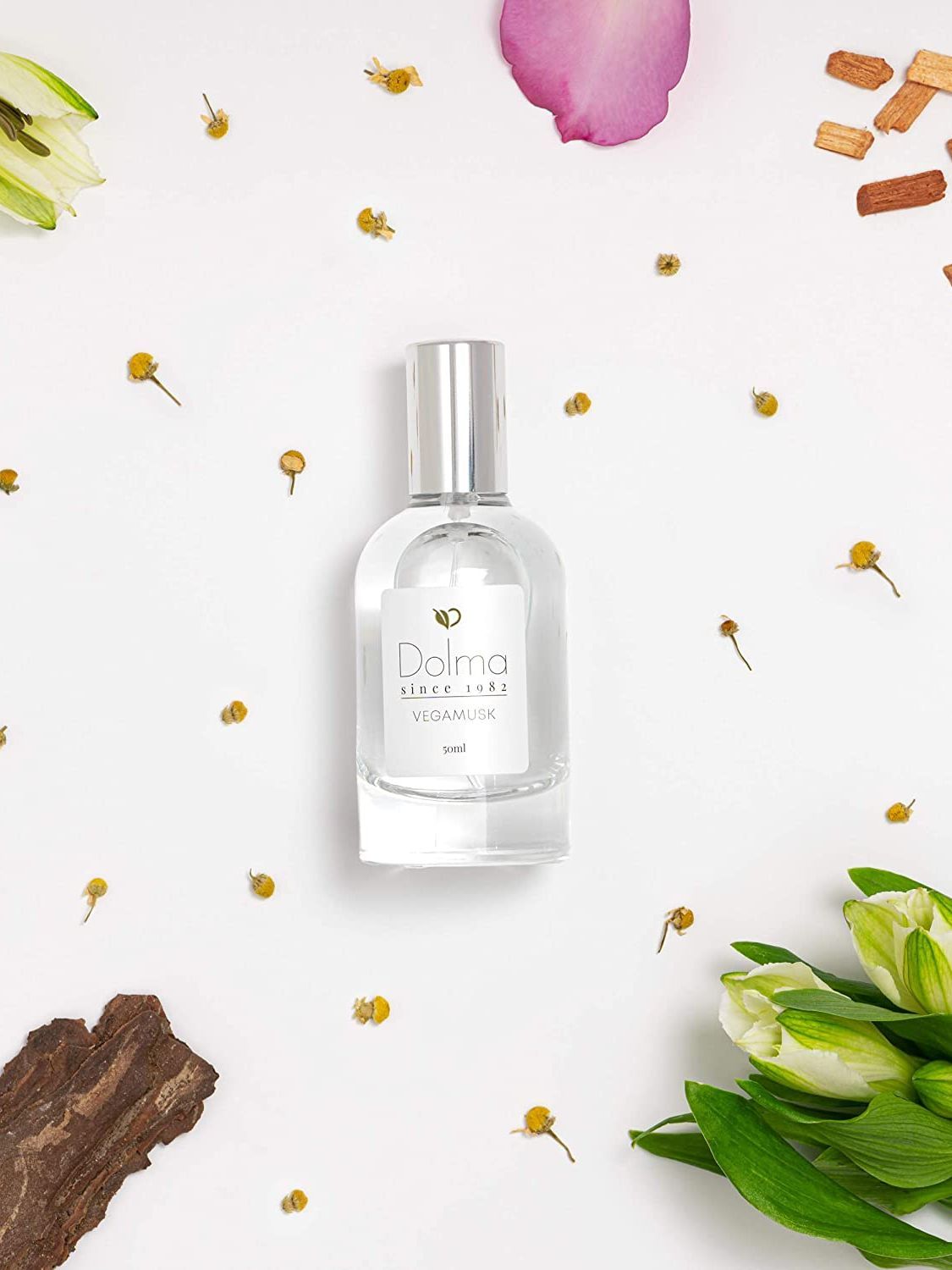
11. Dolma
Best for Men & Women's Ranges
Dolma Fragrances are an independent British company founded in 1982. They offer 100% vegan, cruelty-free fragrances for men and women and plant a tree for every sale. Prices start from £3.50 for samples. We took a peek to see if they sell on Amazon, and it turns out you can get a 50ml bottle for about £10 less than their direct price listed below.
Cost: £34.50 for 50ml / Price per ml: 69p
Travel / Sample Sets:
✓ from £25.95
All-Natural: ✘ both natural and synthetic
Base: Alcohol (denatured)
Outer Packaging: Don't use boxes
Bottle: Bottle, glass, caps, pumps all recyclable (apart from the tiny pipette)
Vegan & Cruelty Free: ✓
Concentration: Eau de parfum
"All ingredients are sourced sustainably and ethically. Dolmas fragrances are held to high safety regulations to make sure they are not only safe for animals and the environment but you too."
DOLMA FRAGRANCES
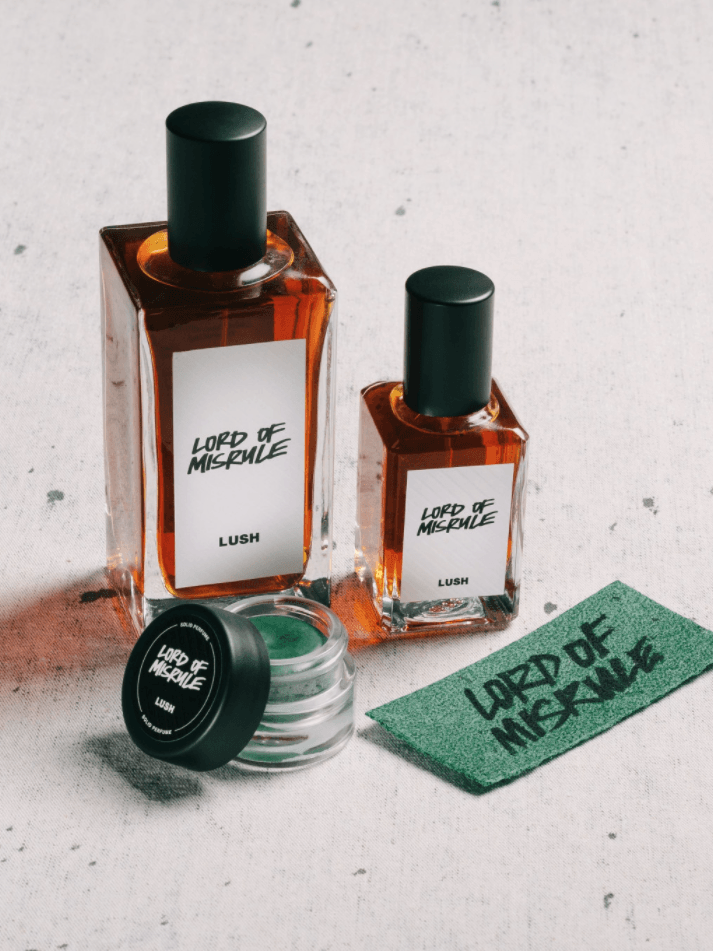
12. Lush
Best for Solid Perfume
Lush pride themselves on their vegan and cruelty-free credentials. All perfume contain ethically sourced essential oils and ingredients and safe synthetics and comes in both alcohol-based or solid perfume.
Cost: £25 for 30ml / Price per ml: 83p
Travel / Sample Sets:
✓ from £10
All-Natural: ✘ both natural and synthetic
Base: Alcohol (denatured) from organic origin, water and glycerine
Outer Packaging: None
Bottle: Glass bottle recyclable, recyclable tin cap and atomiser, glass jar and plastic cap recyclable (or take back to your local store and get a discount)
Vegan & Cruelty Free: ✓
Concentration: Eau de parfum
"No company should be trading from an unethical position and society has a right to expect as the norm fairness and resource stewardship from the companies that supply them. We believe Ethical practices should be business as usual."
LUSH
That's our ultimate list of the most ethical, sustainable and natural perfumes. If there's a great brand you think we should feature - drop us a message.
🌼
Newsletter Signup
